5 Healing Herbs For Our Gut
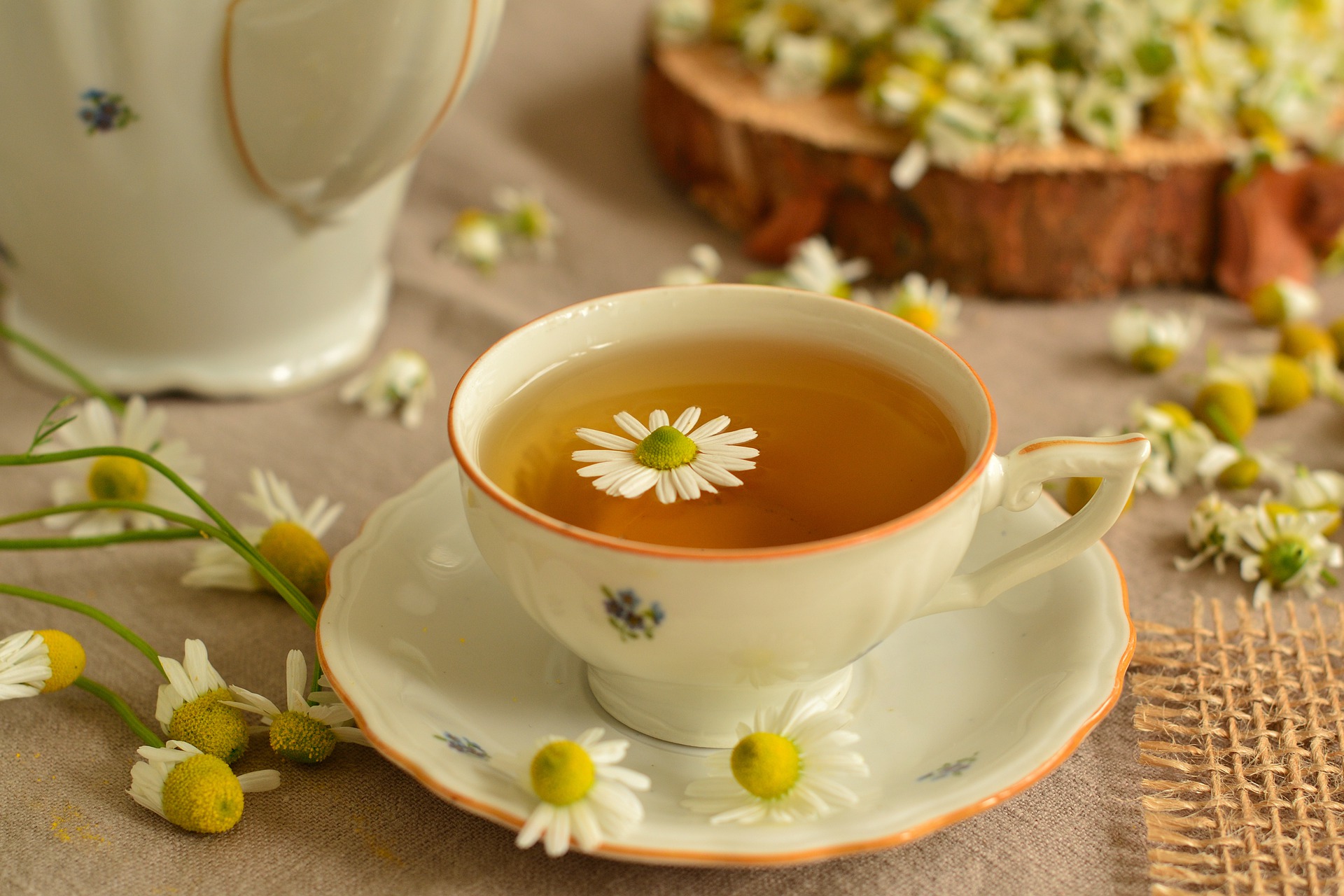
“All disease starts in the gut”, said Hippocrates more than two thousands years ago…
Finally the modern scientific research is catching up, confirming that the state of our gut health is indeed one of the most important factors for our wellbeing.
Surely staying away from processed foods and stress while nurturing our microbiome with the right nutrients will make a difference.
There are also many herbs which can support and heal our gut, let’s have a look at the most effective ones; you can use these herbs daily by adding them to food or enjoying them as herbal teas, tinctures or essential oil.
Please note: in order to get the most benefits from the synergy of their nutrients, herbs should be consumed in their whole form, not as another pill to pop in. Nature can’t be patented, and no lab will ever be able to replicate in a capsule the healing properties of a whole plant.
Ginger
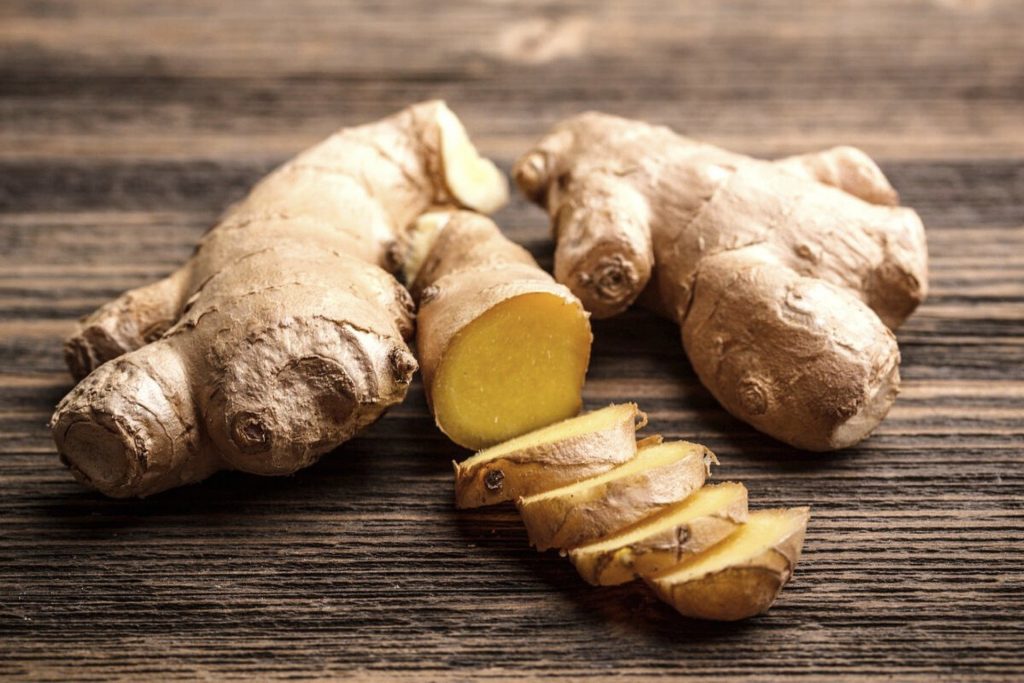
Ginger (Zingiber officinale) has been widely used as a medicinal plant across the world for centuries, and indeed ancient Sanskrit, Chinese, Greek, Roman and Arabic texts report the use of ginger as a medicinal remedy.
It originates from the Indian subcontinent and it has its place of honour in Ayurveda and traditional Chinese medicine, still used extensively today to treat stomach and gut issues such as diarrhea and nausea, a real digestive ally all around for any gastrointestinal disorder.
Ginger is an excellent anti-inflammatory herb, it reduces cramping of the stomach and intestines in no time, helping relieving gas and bloating too.
Multiple studies show its effectiveness against nausea and vomiting, especially in relation to both pregnancy and chemotherapy, and motion sickness
A good natural source of vitamin C, magnesium, potassium, copper, manganese and fibre, ginger is a potent antioxidant and antiviral.
It has been shown to be very effective at preventing the growth of H. pylori – a type of bacteria in the digestive system which can cause stomach ulcers and can lead to stomach cancer.
Furthermore, the medical literature has repeatedly shown that ginger is more effective in treating acid reflux (GERD, gastroesophageal reflux disorder) than acid blockers, without the many nasty side effects that come with blocking stomach acid production.
I like to add fresh ginger root to almost all my cooking – it goes well in soups, curries and stews – and to juices and smoothies.
Enjoy this Supergingerbread Smoothie recipe 🙂
I also encourage people to regularly drink ginger tea throughout their day, it is delicious either hot or cold; ginger iced tea with a little bit of honey is a heavenly drink on a warm day!
Pouring hot water on a ginger root will not do much though, make sure to make a proper decoction, by placing the ginger with cold water in a pot, covering it with a lid, putting on a stove, bringing it to the boil and letting it simmer for at least 10 minutes on low heat. Then remove from heat, add some fresh thyme sprigs or some freshly squeezed lime juice if you wish and let it steep for 5 minutes before drinking it.
Fennel
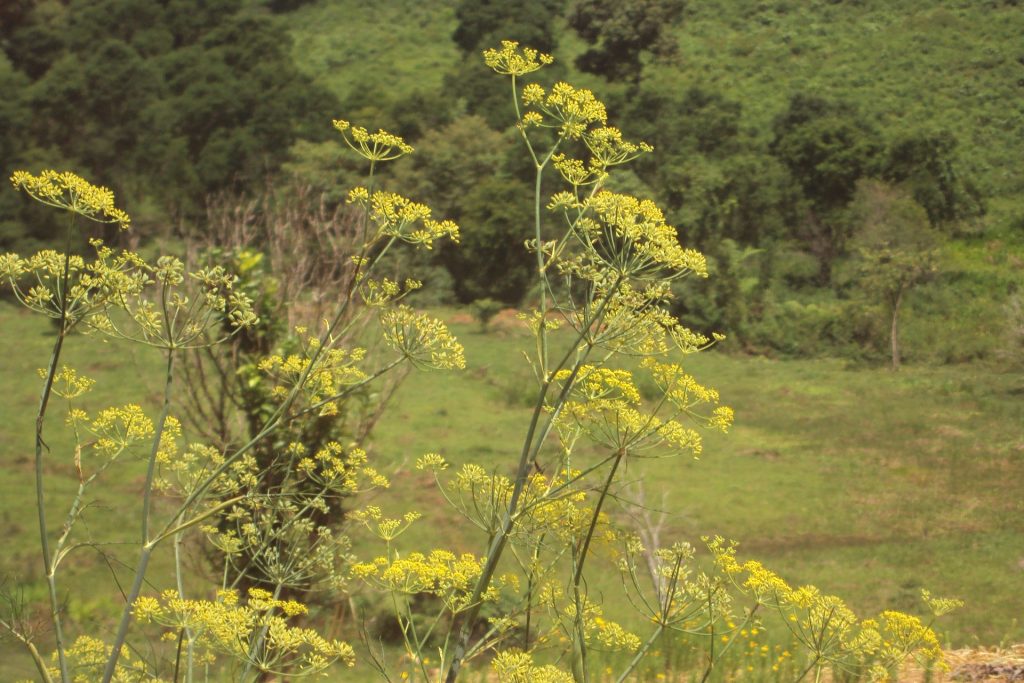
I love the crunchy texture of raw fennel, I enjoy it in my winter salads and on its own as pinzimonio, the Italian way of eating seasonal raw vegetables with an extra virgin olive oil dip (see recipe here).
Fennel is a very good source of fibre, so important for a smooth digestion and to ease constipation, and it also contains lots of minerals, vitamins and phytonutrients.
It is very effective in relieving gas in the stomach and intestine, and it is antispasmodic. Diuretic, it also stimulates the appetite and it is anti-inflammatory, also thanks to its high vitamin C content.
Fennel seeds are a great way to end a meal: yes, they serve as a mouth cleanser, but they help with digestion and gas too!
If chewing seeds is not your thing, try them steeped in hot water, for a refreshening herbal tea.
Chamomile
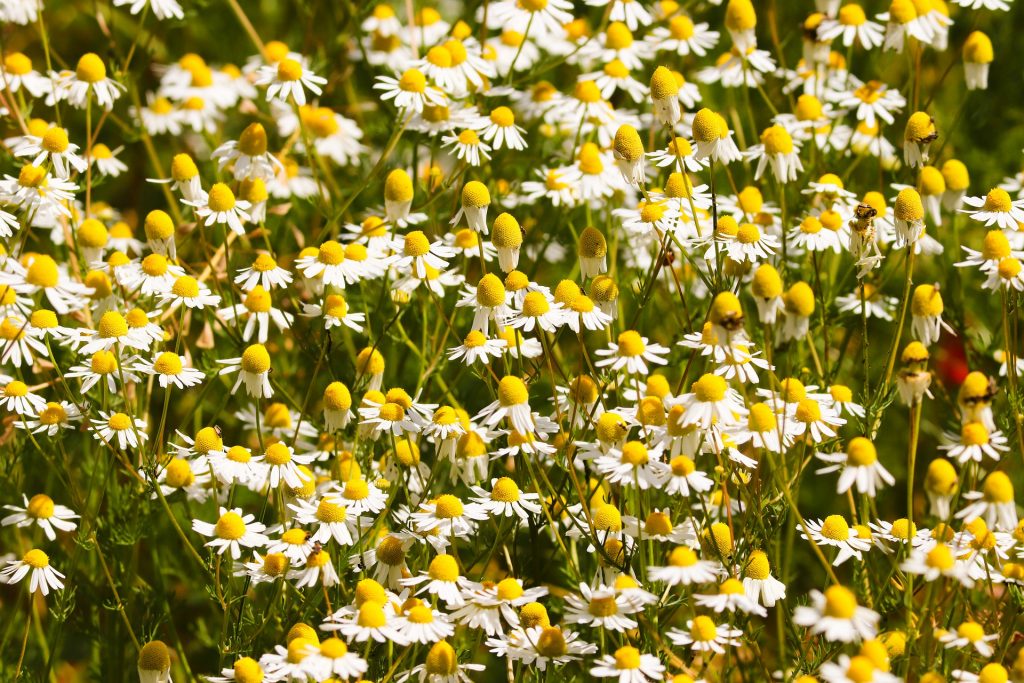
Chamomile (Anthemis nobilis) is probably the first herb I ever learned is medicine, it was the sweet magic in a cup that was healing my tummy and promising sweet dreams as a child.
Usually thought of as a children’s remedy, these little daisy-like flowers are indeed very powerful for adults too.
Chamomile is a wonderful cooling and soothing herb, an excellent relaxant for the digestive system, helping relieving spasms, cramps, colics, morning sickness and general tension and inflammation.
It has been used throughout history in the same ways as we do today: teas, hot compresses, eyes bathing, baths, sitz baths, massage oils, tinctures, a very well known and proved remedy!
Peppermint
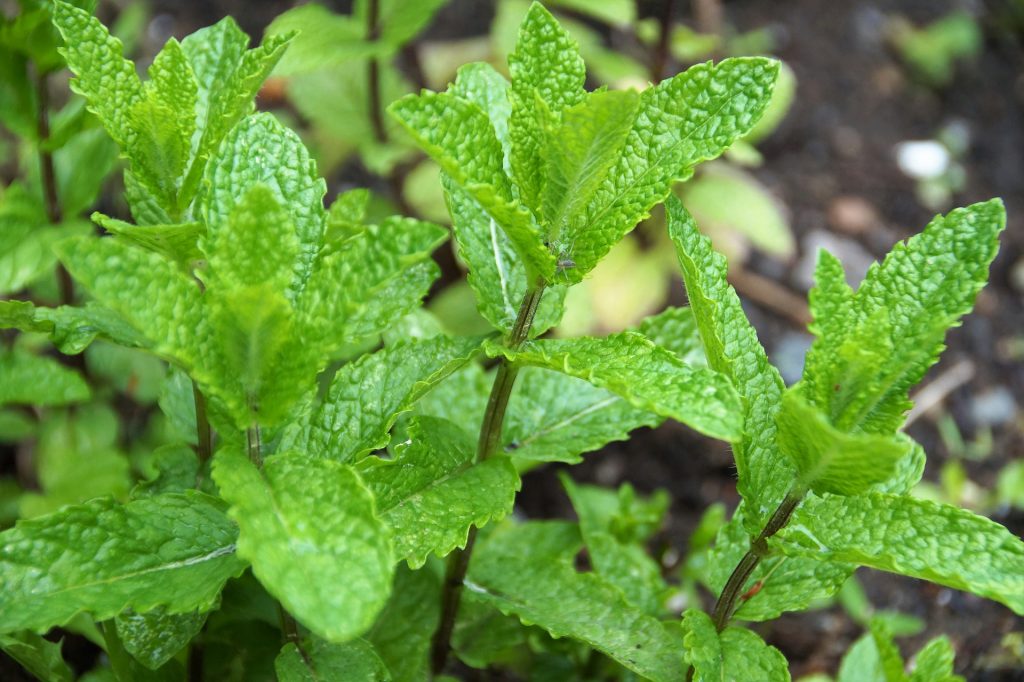
So refreshing, cooling and uplifting, peppermint is surely a must-have medicinal herb at home, so easy to grow even in a small pot on our window sill.
It is amazing for relieving GI issues such as indigestion, heartburn, nausea, constipation, colitis and cramps.
It is also a well-known remedy for nausea in pregnancy and travel sickness.
Peppermint has anti-spasmodic and anti inflammatory effects, soothing and calming pain quite quickly, and this is also why it is indicated in conditions such IBS to ease symptoms (1, 2)
It also helps in fighting gastrointestinal infections, as it is an anti-microbial herb; peppermint is one of the powerful medicinal herbs that can kill H Pylori (3).
A great way to enjoy peppermint? As a tea yes (also amazing for babies and children colics!), but also try some mint sprigs with a couple of fresh basil leaves and few slices of cucumber in spring water, and carry it with you to drink during the day.
Abdominal massage with peppermint essential oil can be very helpful in reducing cramps and relieving constipation in babies, children, adults and the elderly. Just add few drops to a carrier oil and massage the abdomen for few minutes.
Peppermint oil can also be taken internally to relieve gastric spasms and improve digestion, just make sure it is a medicinal graded essential oil.
Gentian (Gentiana lutea)

A well-known bitter, gentian is probably the most classic digestive herb. While the blue flowering gentian often appears in books and labels, it is the yellow flowered species that is used in herbal medicine.
Commonly used in Italy and France to make aperitifs (alcoholic drinks enjoyed before a meal), gentian is a powerful tool to kick-start our appetite and digestive system, getting it ready to process our meal.
A strong anti-inflammatory, cooling and astringent herb, gentian has the ability to tone our gastrointestinal tissues, also very useful against nausea or poor digestion.
You can enjoy Gentian as a tincture, by simply squeezing few drops directly under the tongue for a quick effect, or diluted with some water.
